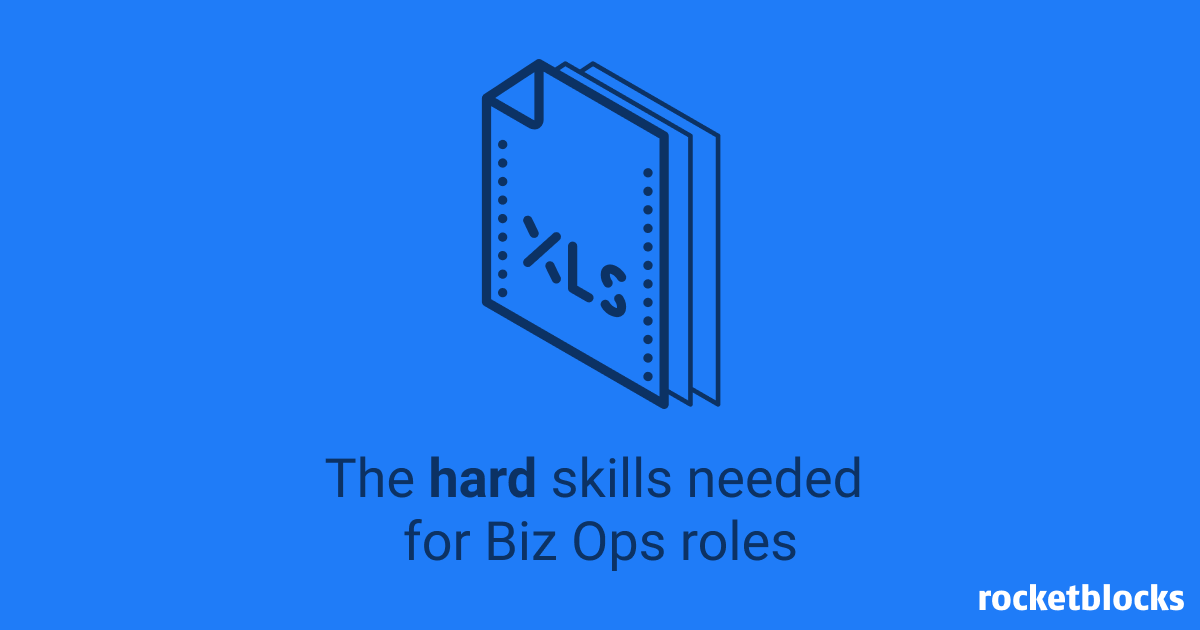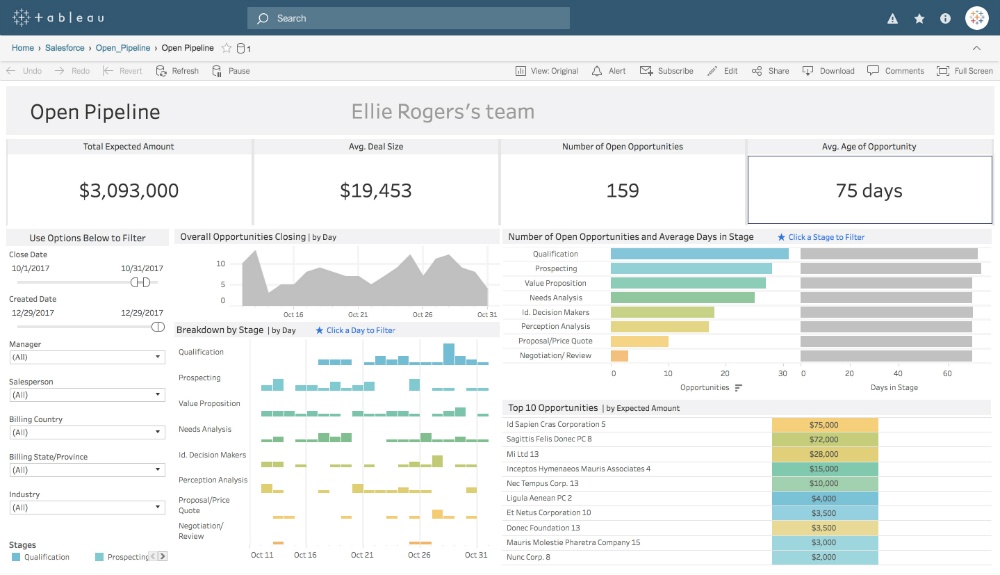Biz ops hard skills
The four hard skills tech companies interview for and why they matter
|
|
|
Professionals in strategy & biz ops spend their days immersed in data, often becoming subject matter experts in finding, analyzing, interpreting data, and making recommendations.
The importance of hard skills
This core competency, along with the ability to translate this information into financial models and forecasts, serves as a foundation for success in the role. At the analyst level, expect a higher emphasis on your ability to perform tasks involving these hard skills.

As you progress and become more senior, you will still be expected to be competent in these hard skills, but a much higher premium will be placed on soft skills, such as leading and managing a team, socializing the work with other departments, and overseeing analyses. At this level, while you may not be the one directly querying data or building financial models, is it still crucial that you understand how to do these in order to be effective.
Bottom line: hard skills get you hired and help establish yourself, soft skills help you progress up the career ladder.
Four key hard skills
The following areas are core competencies in strategy & biz ops and key skills hiring managers will be looking for.
1. Querying and obtaining data
As previously mentioned, the day-to-day is spent immersed in data, and members of strategy & biz ops are expected to answer all sorts of questions with it. For most of these roles, SQL is a foundational skill to perform data analysis. It's used for accessing, cleaning, and analyzing data that is stored in databases.
Most companies track all sorts of information - including website performance data, customer data, product usage data, and financial data - and store them in these databases. SQL is a tool that allows you to access this data to answer a wide array of important questions such as, "How many website visitors created an account each month?", or "Which customers purchased what goods and at what quantities?" to name a few.
Often, strategy & biz ops projects involve driving and leading an analysis, so the ability to quickly query data to get the information that you need is a must.
If you don't have prior experience using SQL, don't fear! SQL can be easily learned, and there are a multitude of online resources to teach you such as this tutorial.
2. Analytics & data visualization
Alright! You're proficient at using SQL to query data. Now what?
Members of the team are frequently tasked with building and delivering executive-level reporting on key performance metrics, which can be as high level as "How many new customers came to the site from paid marketing channels?" to answering questions as detailed as "How many enterprise technology customers viewed and used a specific product?".
In the example below, an executive on the sales team is interested in monitoring the performance of his sales team. To assess this, you might use SQL to find information such as revenue and profit by region, revenue growth over time, and revenue by product category. From there, you create a dashboard with these visualizations so that the leader can monitor the performance of his/her team in real time. As an expert in the data, you should also expect to be able to explain trends and sudden changes in the data. For instance, "What drove the sudden increase in sales in 2017?".

In addition to reporting, another important aspect of data visualization is presenting your data analysis in a clear and persuasive way. Before presenting a recommendation, you need to transform all the tables and numbers used during your data analysis into visually appealing charts which will allow you to present a more compelling and effective narrative. Often, we're presenting data driven recommendations to executives, and so this ability to storytell with data is critical to effectuating change across an organization.
If this sounds foreign to you, don't fear! These skills can be easily learned, and there are a multitude of online resources to teach you these hard skills such as story telling with data and data visualization.
💡 Tip: Our biz ops interview prep can help
3. Statistics & experimentation
Another aspect of the role involves a basic understanding of statistics and experimentation. Nowadays, it is common for organizations to de-risk new initiatives, such as product launches and new pricing, by first running an A/B test experiment.
Frequently, it is the responsibility of the Strategy & Biz Ops team to partner with data science teams to design the experiment and define success metrics.
As an example, let's say that you have a hypothesis that your product is currently underpriced relative to your customers' willingness to pay.
To validate this, you propose running an experiment where a certain portion of your customers will see different variations of your business's pricing. However, you still must answer some outstanding questions in order for this experiment to be setup and run successfully:
- What price and how many different variations of pricing should the customer see?
- Which customers will participate in this experiment?
- How many customers should participate in this experiment in order to have confidence in experiment results?
- What key metrics should the organization track to measure the success of the experiment?
After answering these core questions, sometimes you will be tasked with building reporting which could range from building a tableau report to putting together a dashboard in Google Sheets.
Sound exciting? Well it is! Projects such as the one described in the example above ensure you're constantly at the center of innovation and discovery within the company.
4. Financial modeling & opportunity sizing
A final and crucial aspect of this role involves financial modeling and sizing opportunities. Because Strategy & Biz Ops is constantly inventing and building new business cases to drive growth and scale the business, it is critical to understand the impact of them. After all, how can you successfully pitch something if you don't know the expected outcome!?
Modeling and opportunity sizing is an invaluable skill with a multitude of applications. Of course, there are the classic market sizing exercises that come up occasionally (e.g., how big is the market for product X in Canada?) but you'll also flex this muscle in many tactical cases too.
For instance, if the team recommends building a new sales team, how much revenue can we expect them to generate? If the team recommends building a new product, how many customers can we expect to adopt it, and what is the impact on the business? In the pricing-change example above, how many customers can we expect to pay a higher version of our pricing, and how much incremental revenue would the company generate?
All in all, these skills are critical for success in a career in strategy & biz ops. You will constantly be challenged to drive the business forward from a data analysis and experimentation perspective, and this expertise will ensure that you become an invaluable member of an organization.
P.S. Are you preparing for Strategy & BizOps interviews?
Get real interview questions. Learn from sample answers from BizOps leaders with experience at Google, Uber, Opendoor & more. Plus concept reviews and premium 1-on-1 Expert coaching.




